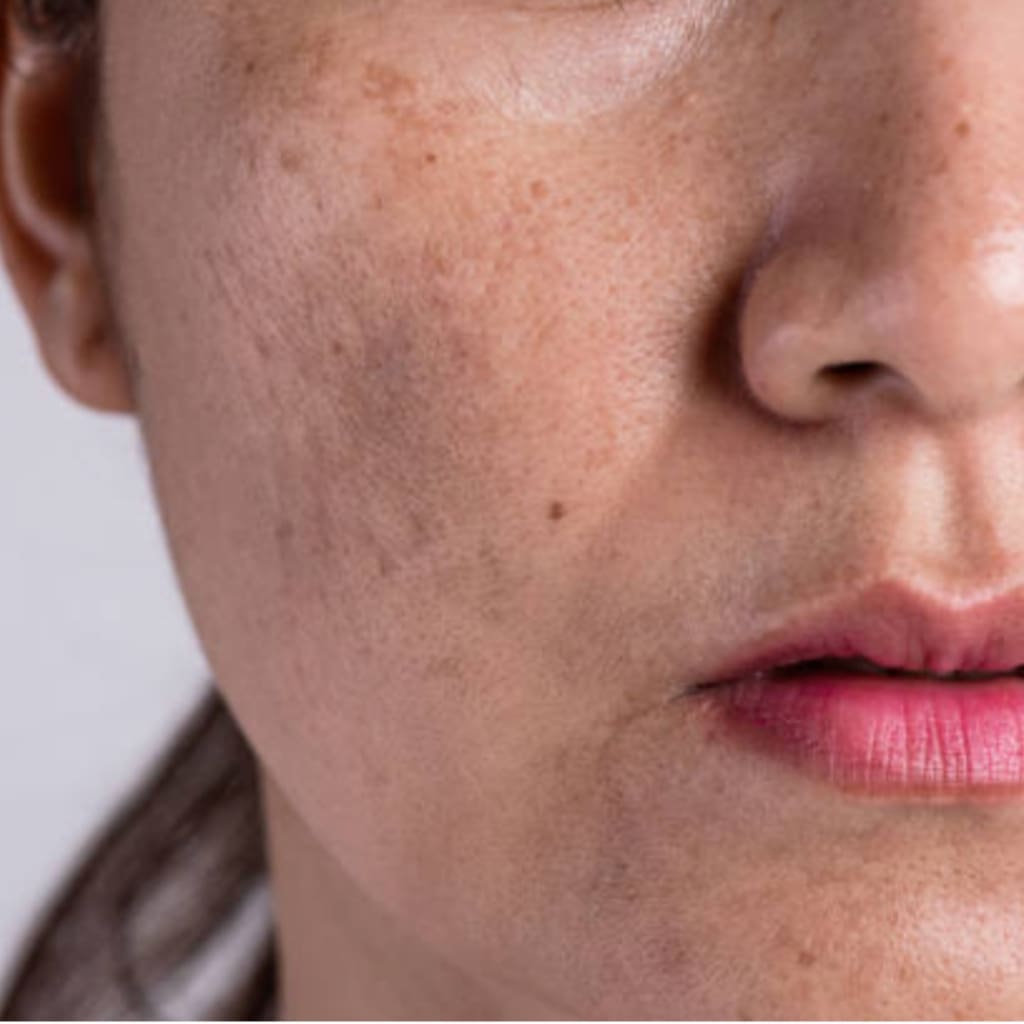
Ever wondered why your breakouts disappear but the red or dark spots seem to linger forever? Those lingering marks are known as post inflammatory hyperpigmentation (PIH) or post inflammatory erythema (PIE)- and they’re not technically acne scars. The good news? They can fade, and with the right combination of professional treatments and smart skincare, you can speed up the process.
What’s the Difference Between PIH and PIE?
Post Inflammatory Hyperpigmentation (PIH)
PIH appears as brown or dark spots after inflammation or injury- like acne, picking, or even harsh exfoliation. It is caused by overproduction of melanin (your skin’s pigment) in the healing process.
Common in: Medium to darker skin tones
Looks like: Brown or tan flat spots
Key tip: Sunscreen is non negotiable- UV exposure makes PIH worse
Post Inflammatory Erythema (PIE)
PIE shows up as pink, red, or purplish spots and happens when tiny blood vessels are damaged during inflammation.
Common in: Fair to medium skin tones
Looks like: Red marks that seem to never fade
Key tip: Topical brighteners won’t help much- these need treatments that target vascular issues.
Why Do Acne Marks Stay So Long?
Both PIH and PIE stick around because they’re part of your skin’s healing process.
When inflammation happens, your body ramps up pigment or blood flow to the area. Once the breakout heals, those changes can persist- especially if you pick at your skin or skip SPF.
Factors that make acne marks worse include:
- Sun exposure without sunscreen
- Picking or squeezing pimples
- Over exfoliating
- Using harsh ache products that cause more irritation
- Hormonal changes or slow cell turnover
What At Home Treatments Help PIH or PIE?
While deep marks need professional help, the things below can improve mild discoloration over time:
- Niacinamide: Calms redness and helps even skin tone
- Azeliac Acid: Reduces both pigmentation and inflammation
- Vitamin C: Brightens and supports collagen production
- SPF 30+ Daily: Prevents spots from darkening and new ones from forming.
- Gentle Exfoliation: Helps skin shed old pigment- but don’t over do it.
What Professional Treatments Quickly Improve PIH or PIE?
If you’ve tried everything and your marks still won’t fade, that’s where our advanced treatments come in:
CO2 Laser
The gold standard for overall skin renewal:
- How it works: Uses laser energy to resurface skin, trigger new collagen, and fade discoloration.
- Best for: Stubborn PIH, acne scars, enlarged pores, and fine lines
- Results: Brighter, smoother skin that looks more even in tone and texture.
Procell Microchanneling
A next gen version of microneedling with growth factors that supercharge your skin’s natural healing.
- How it works: Creates controlled micro injuries to stimulate new skin and fade pigment or redness
- Best for: Both PIH and PIE- especially for sensitive or thinner skin
- Bonus: Minimal downtime and great glow after healing.
Chemical Peels
Target surface pigment and dullness with precision
- How it works: uses controlled exfoliation to lift pigment and renew skin cells.
- Best for: Mild to moderate PIH, even tone, and rough texture
When Should I See a Professional for PIH or PIE?
If your acne marks have been around for months, aren’t responding to brightening products, or are starting to affect your confidence, it’s time for a professional plan.
Our medical team at The Injectables Lounge customizes treatment plans based on your skin tone, pigment type, and sensitivity- so you get results that actually last.
TL;DR
- PIH = brown/dark pigment from melanin overproduction
- PIE = red/pink marks from broken blood vessels
- At home: Use niacinamide, Vitamin C, azelaic acid, and SPF daily
- In office: CO2 laser, Procell microchanneling, and peels are most effective
- Avoid picking, harsh scrubs, and skipping sun screen